Risk assessment plays a pivotal role in the audit process, providing auditors with a framework to identify, evaluate, and respond to risks that may impact the financial statements of an organization. This article explores the importance of accurate risk assessment in audits and its implications for audit quality and effectiveness.
1. Identifying and Understanding Risks:
- Accurate risk assessment helps auditors identify and understand the risks inherent in an organization’s operations, including financial, operational, and compliance risks.
- Understanding these risks enables auditors to plan and perform audits effectively, focusing on areas of higher risk and allocating resources appropriately.
2. Enhancing Audit Quality:
- Accurate risk assessment is essential for maintaining audit quality. It ensures that auditors are aware of potential risks that could impact the financial statements and allows them to tailor their audit procedures accordingly.
- By focusing on areas of higher risk, auditors can provide more meaningful and relevant audit findings and recommendations to their clients, enhancing the overall quality of the audit process.
3. Tailoring Audit Procedures:
- Risk assessment helps auditors determine the nature, timing, and extent of audit procedures to be performed. It allows auditors to tailor their procedures to address specific risks identified during the assessment process.
- This tailored approach ensures that audit resources are efficiently allocated and that audit procedures are effective in addressing the risks identified.
4. Improving Audit Efficiency:
- Accurate risk assessment can improve audit efficiency by allowing auditors to focus on areas of higher risk and prioritize their audit procedures accordingly.
- By identifying and addressing risks early in the audit process, auditors can reduce the likelihood of surprises later in the audit and minimize the need for additional procedures.
5. Strengthening Audit Independence and Objectivity:
- Accurate risk assessment is essential for maintaining audit independence and objectivity. It ensures that auditors remain impartial and unbiased in their assessments and that their findings are based on objective criteria.
- This strengthens the credibility and reliability of the audit process, enhancing stakeholder confidence in the financial statements and the audit profession as a whole.
Conclusion:
Accurate risk assessment is a cornerstone of the audit process, providing auditors with the foundation they need to plan, perform, and report on audits effectively. By identifying and evaluating risks, auditors can enhance audit quality, tailor audit procedures, improve audit efficiency, and strengthen audit independence and objectivity. It is essential for auditors to conduct thorough and accurate risk assessments to ensure the integrity and reliability of the audit process.

